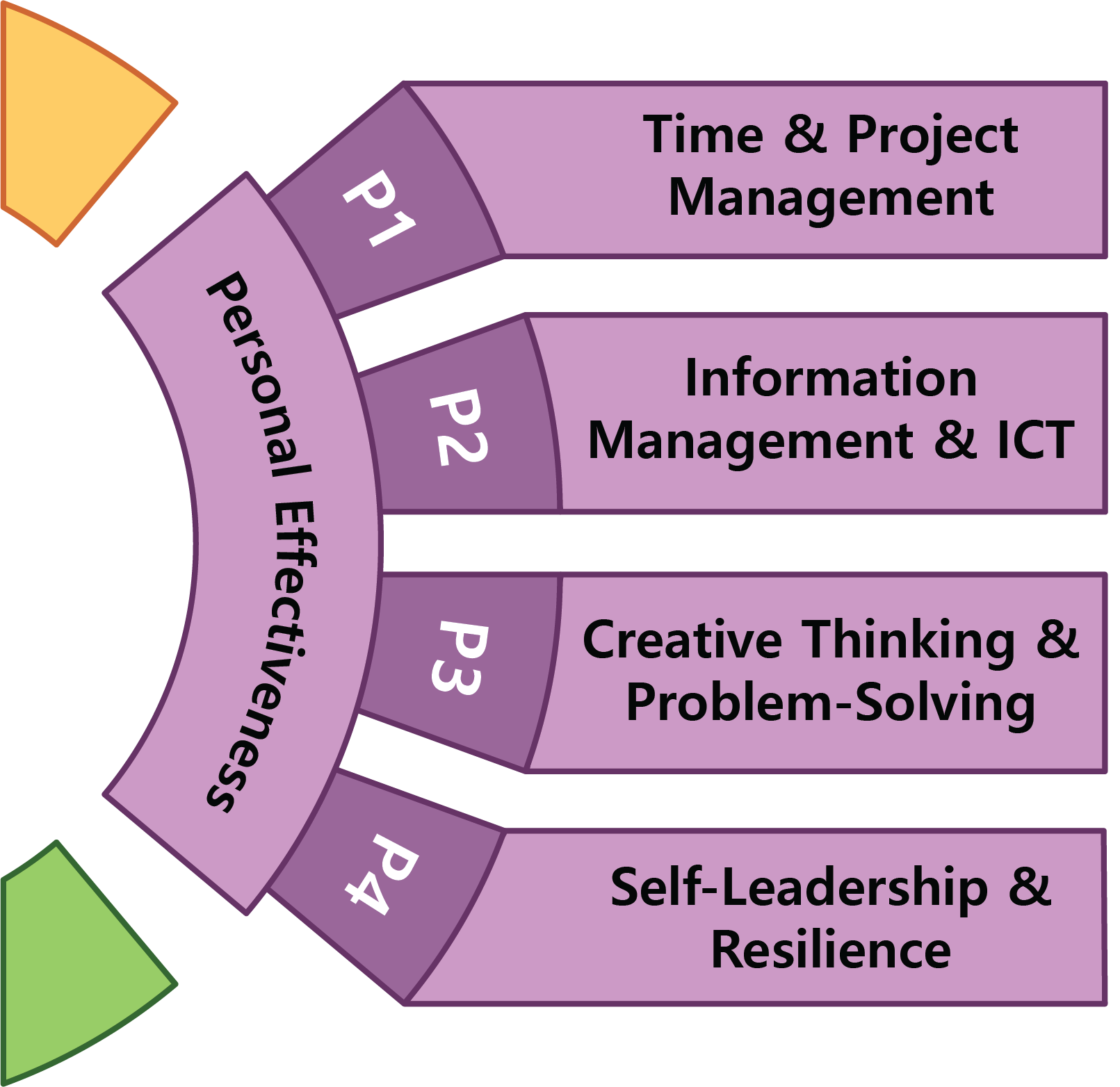Personal Effectiveness
Personal effectiveness is 'how' we do our research well. It runs through every aspect of life and is mapped onto four competencies within the CamRDF:

Jump to:
- P1: Time and Project Management
- P2: Information Management & ICT
- P3: Creative Thinking & Problem-Solving
- P4: Self-Leadership & Resilience
P1: Time and Project Management
"I can manage my time and research project effectively."
A researcher has many demands on their time: not only do you have to progress your own research, you may have a plethora of other commitments such as teaching, keeping up with the literature, preparing for and attending conferences, engaging with your department or College, and taking part in clubs and societies.
You need to be capable of balancing and prioritising all of these tasks while successfully meeting deadlines without causing yourself unnecessary stress. Moreover, you need to maintain your wellbeing with a balanced lifestyle.
As well as exploring productivity software, you can develop these skills through our online courses and our workshops on managing yourself and your research.
P2: Information Management & ICT
"I can manage information effectively and have general ICT skills."
As researchers, we work with information every day. It is crucial that you manage your literature, data and references properly, not only to comply with regulations but also so that you can conduct your research effectively.
You must also have developed general ICT skills, such as the ability to produce a variety of document types, create a professional presentation, or manage your emails. These may sound elementary, but many people are not as well-versed in these skills as they could be.
You can develop these skills through courses run by the Cambridge University Libraries and the University Information Services. There are also several LibGuides on managing your data and literature.
P3: Creative Thinking & Problem-Solving
"I can think creatively and take an adaptable approach to solving problems."
This competency is not about the ability to produce poems, paintings or symphonies, but rather the development of the thinking process behind creative and practical problem-solving skills. Sir Ken Robinson (education advisor) defined creativity as ‘original ideas that have value’, and you can see this resonate with the Cambridge definition of a PhD: ‘an original contribution to learning’. To complete a PhD is an act of creativity.
You can develop your creative thinking through our workshop on applying creativity in research.
P4: Self-Leadership & Resilience
"I have the self-awareness and confidence necessary to act effectively and be resilient in the face of setbacks."
Research can be emotionally as well as intellectually challenging. You need to develop your confidence and awareness of yourself so that you can build a resilient mindset, cope with challenges and learn from feedback constructively.
This will allow you to act confidently in pursuing the outcomes you are seeking in your career, and successfully navigate the impacts your character has on your work, both positive and negative.
You might want to explore establishing some mentoring relationship(s) with people you identify as being helpful to different aspects of your professional development and career growth.
You can develop these skills in part through our workshops on managing yourself and your research.
